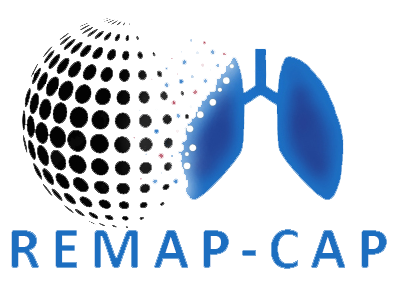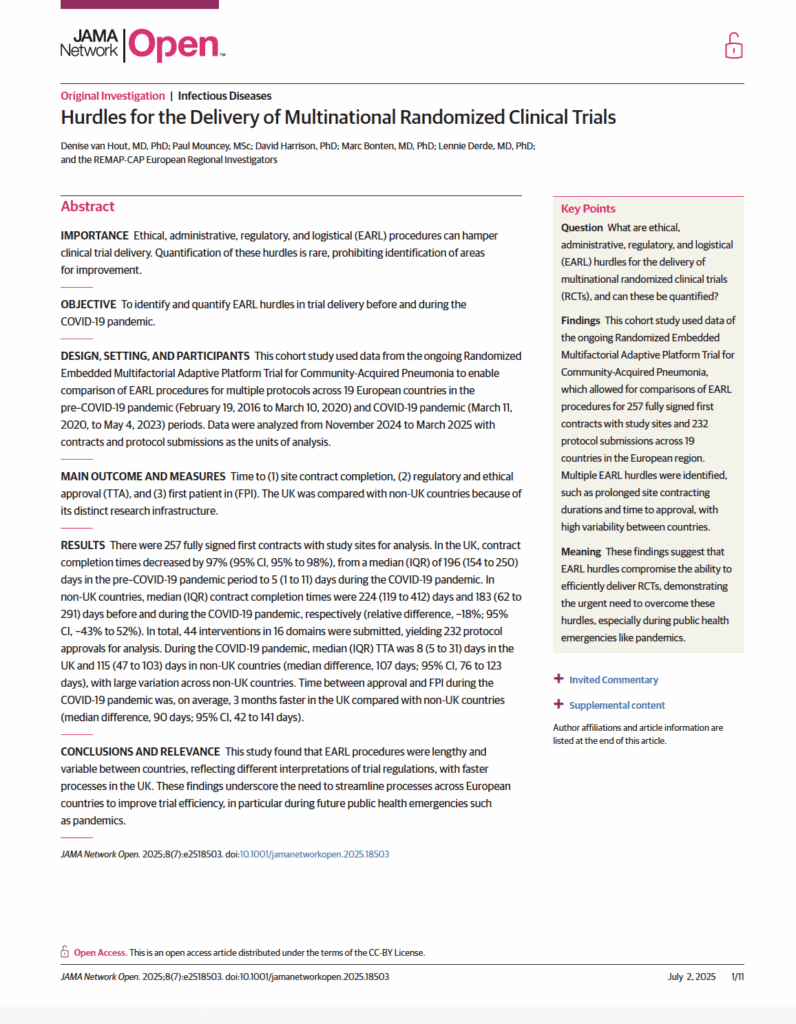BACKGROUND
This cohort study used data from the ongoing Randomized Embedded Multifactorial Adaptive Platform Trial for Community-Acquired Pneumonia to enable comparison of EARL procedures for multiple protocols across 19 European countries in the pre–COVID-19 pandemic (February 19, 2016 to March 10, 2020) and COVID-19 pandemic (March 11, 2020, to May 4, 2023) periods. Data were analyzed from November 2024 to March 2025 with contracts and protocol submissions as the units of analysis.
Time to (1) site contract completion, (2) regulatory and ethical approval (TTA), and (3) first patient in (FPI). The UKwas compared with non-UK countries because of its distinct research infrastructure.
RESULTS
There were 257 fully signed first contracts with study sites for analysis. In the UK, contract completion times decreased by 97%(95%CI, 95%to 98%), from a median (IQR) of 196 (154 to 250) days in the pre–COVID-19 pandemic period to 5 (1 to 11) days during the COVID-19 pandemic. In non-UK countries, median (IQR) contract completion times were 224 (119 to 412) days and 183 (62 to 291) days before and during the COVID-19 pandemic, respectively (relative difference, −18%; 95% CI, −43%to 52%). In total, 44 interventions in 16 domains were submitted, yielding 232 protocol approvals for analysis. During the COVID-19 pandemic, median (IQR) TTA was 8 (5 to 31) days in the UK and 115 (47 to 103) days in non-UK countries (median difference, 107 days; 95%CI, 76 to 123 days), with large variation across non-UK countries. Time between approval and FPI during the COVID-19 pandemic was, on average, 3 months faster in the UK compared with non-UK countries (median difference, 90 days; 95%CI, 42 to 141 days).
CONCLUSIONS
This study found that EARL procedures were lengthy and variable between countries, reflecting different interpretations of trial regulations, with faster processes in the UK. These findings underscore the need to streamline processes across European countries to improve trial efficiency, in particular during future public health emergencies such as pandemics.



